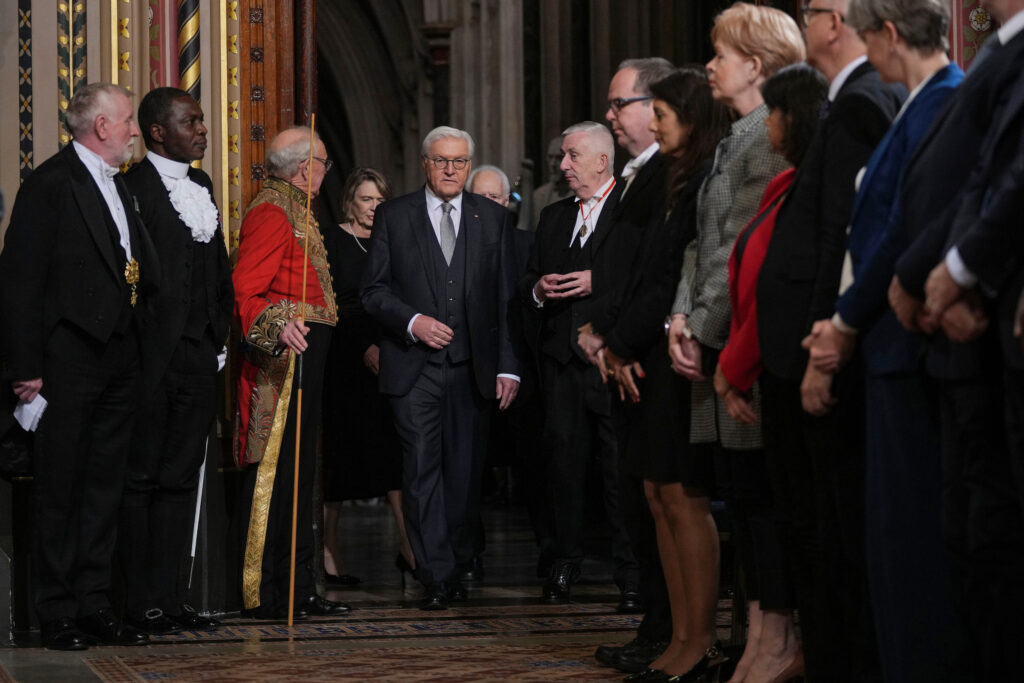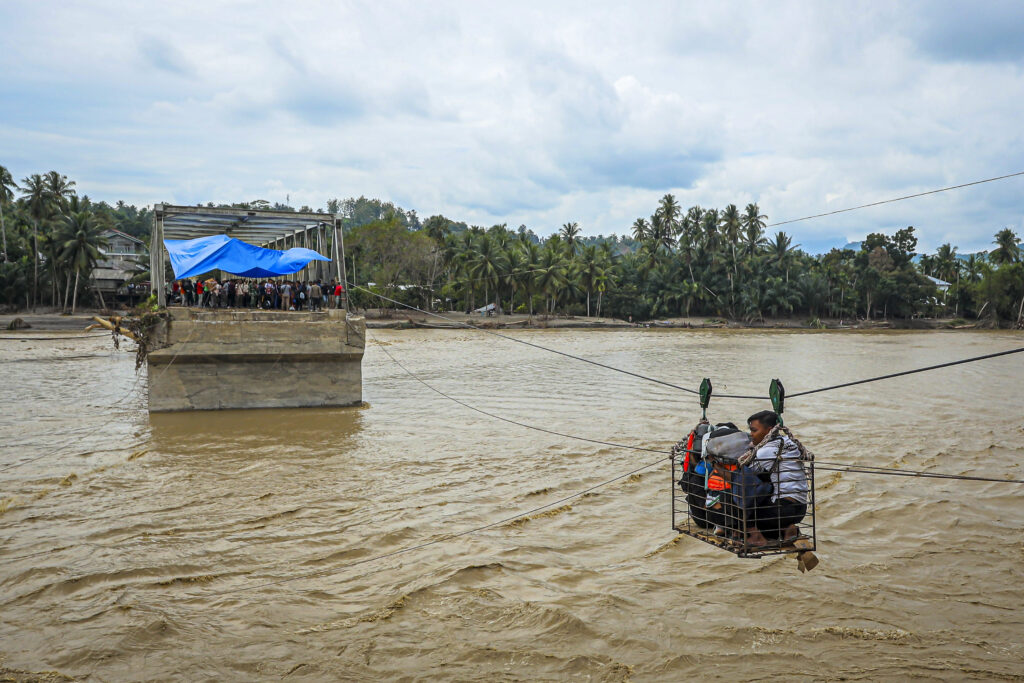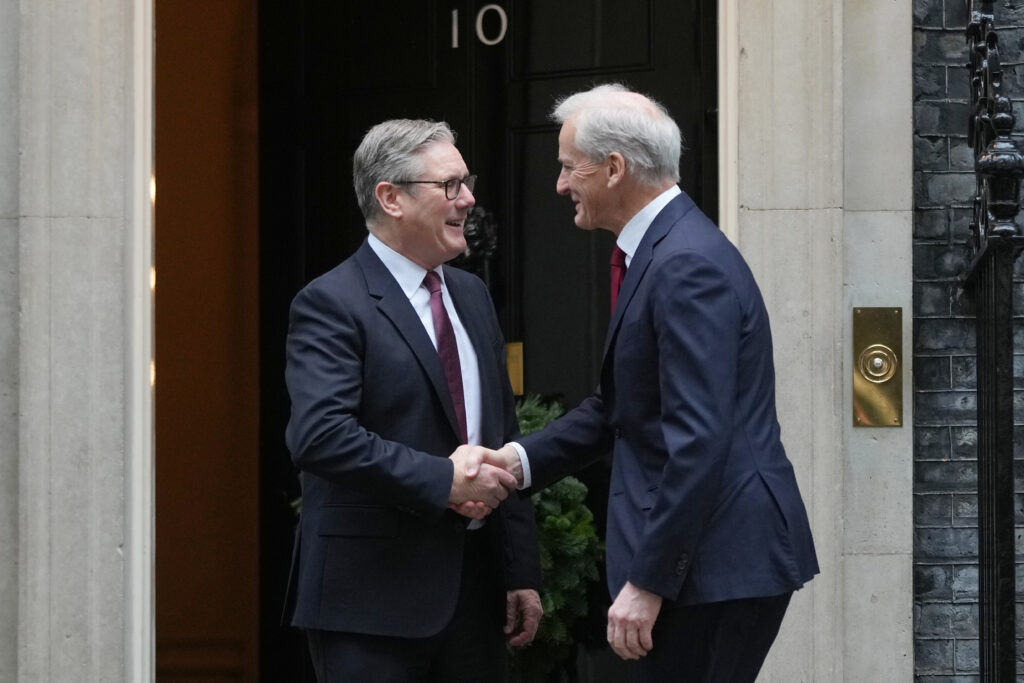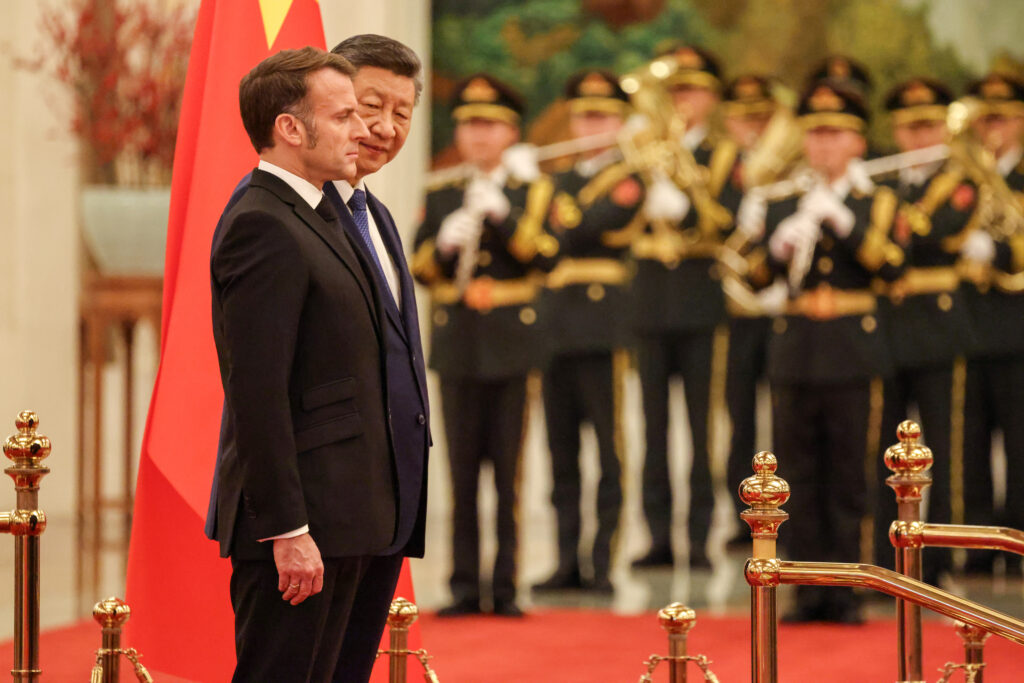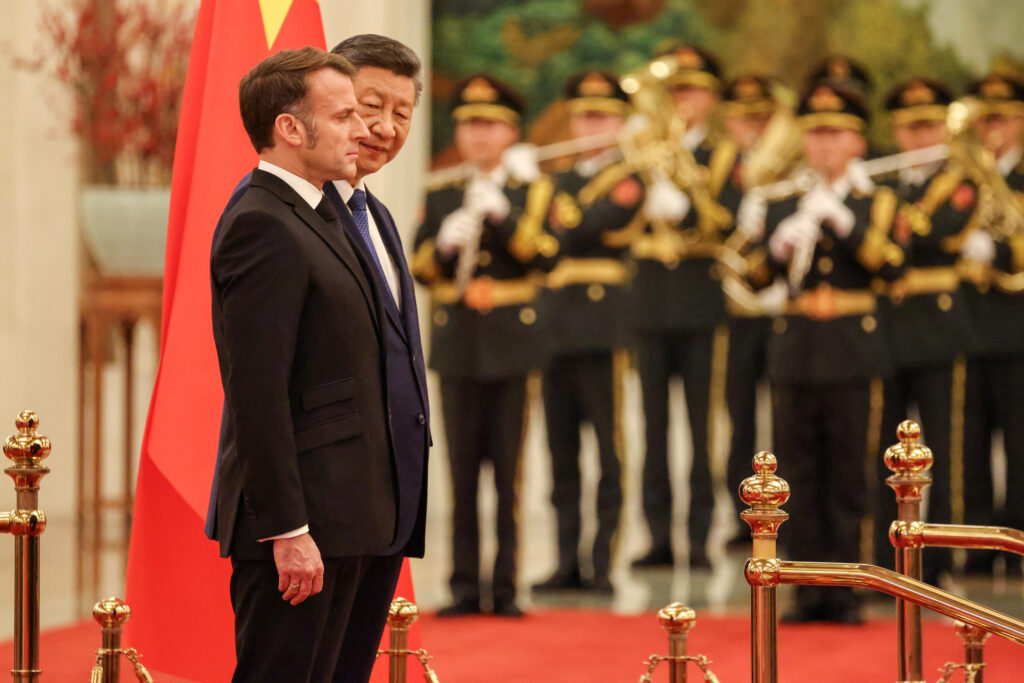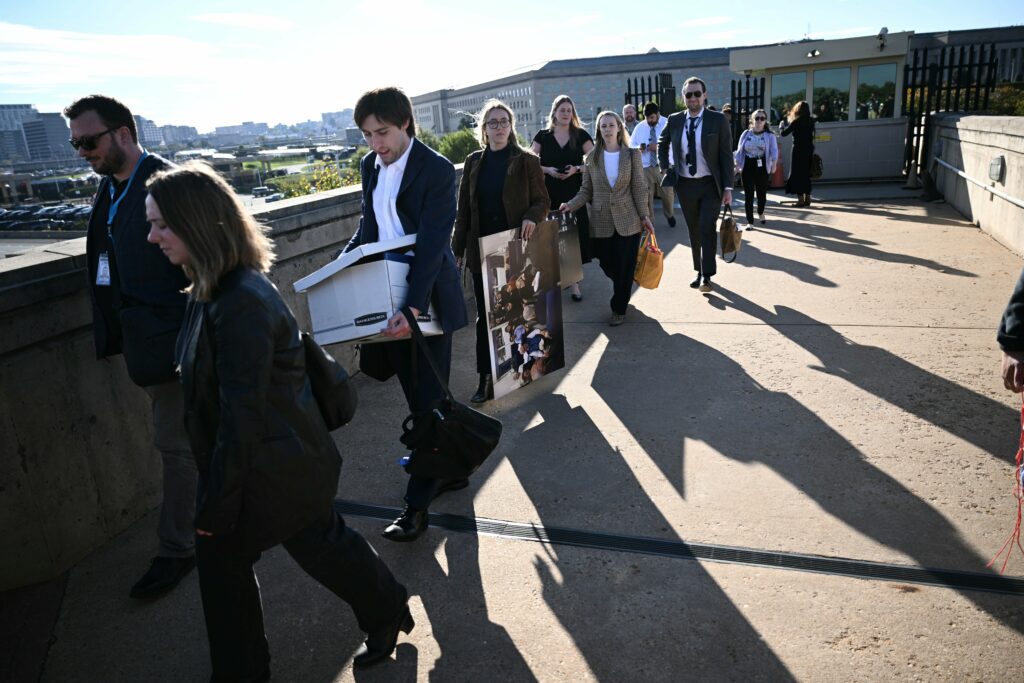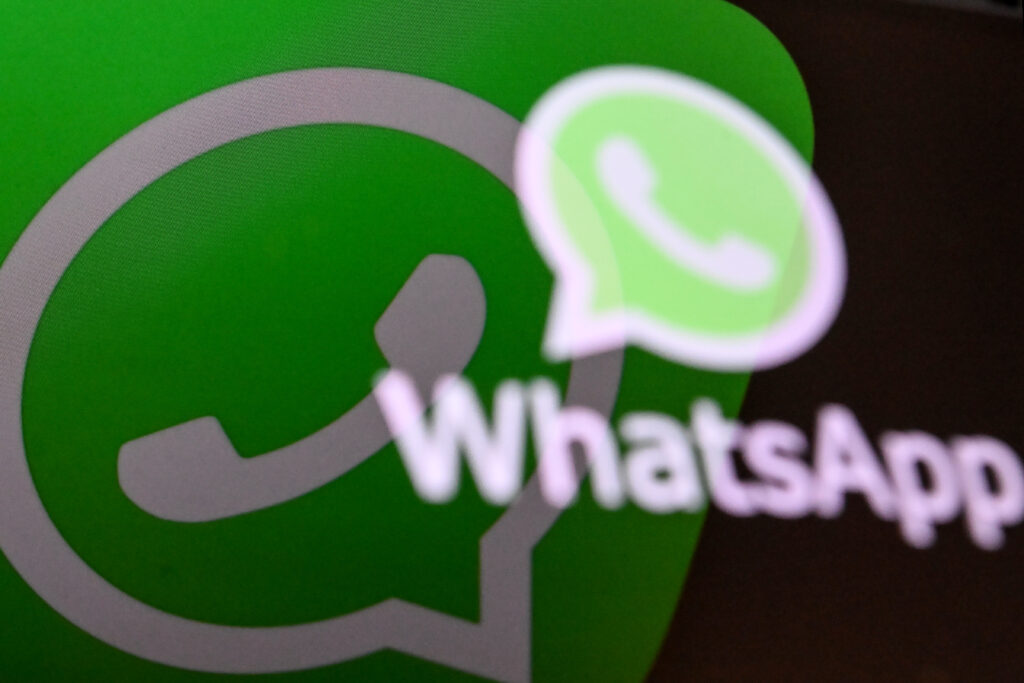Le président français Emmanuel Macron a pressé jeudi son homologue chinois Xi Jinping d’oeuvrer à la fin de la guerre en Ukraine et à corriger les déséquilibres commerciaux, mais a entendu son hôte rejeter fermement toute part de responsabilité dans la poursuite de la crise ukrainienne.”La Chine soutient tous les efforts pour la paix” et “continuera à jouer un rôle constructif pour une solution à la crise” ukrainienne, a dit M. Xi. “En même temps, elle s’oppose fermement à toute tentative irresponsable visant à rejeter la faute ou à diffamer quiconque”, a-t-il ajouté alors que M. Macron n’a publiquement formulé aucun grief.Lors d’une apparition commune devant les médias, M. Macron a dit avoir “longuement évoqué” avec son homologue le conflit en Ukraine, “menace vitale pour la sécurité européenne”. “J’espère que la Chine pourra se joindre à notre appel et à nos efforts pour parvenir dans les meilleurs délais à tout le moins à un cessez-le-feu”, a-t-il dit.Il avait auparavant qualifié la coopération avec la Chine de “déterminante” sur l’Ukraine. Il avait plus largement reconnu l’existence de “désaccords” avec la Chine, mais avait affirmé “la responsabilité de savoir les dépasser”.Le président chinois, accompagné de son épouse Peng Liyuan, a reçu M. Macron et son épouse Brigitte dans le cadre monumental du Palais du peuple, décor des congrès du Parti communiste chinois. Ils ont écouté les hymnes nationaux et passé en revue la garde, avant d’être salués par des enfants auxquels M. Macron a adressé un baiser de la main.Le chef de l’Etat français, arrivé mercredi soir, accompagné également par 35 dirigeants de grands groupes (Airbus, EDF, Danone..) et d’entreprises familiales, du luxe à l’agroalimentaire, a assisté à la signature d’un certain nombre d’accords.Il s’agit de sa quatrième visite d’Etat en Chine depuis qu’il a été élu président en 2017. Xi Jinping a lui-même été reçu en France en grande pompe en 2024 et l’Elysée présente le temps que M. Xi passera avec M. Macron d’ici à vendredi, y compris à titre privé, comme un signe de l’importance accordée à la relation.Cependant, les différends avec la France et, plus largement l’Europe, sont profonds. L’Europe voudrait voir la Chine user de son influence pour mettre fin à la guerre à ses portes.La Chine n’a jamais condamné l’invasion de l’Ukraine par la Russie en février 2022. Partenaire économique et politique primordial de la Russie, elle est le premier pays acheteur de combustibles fossiles russes au monde, y compris de produits pétroliers, alimentant ainsi la machine de guerre. Des Européens l’accusent de fournir des composants militaires à Moscou, ce que dément Pékin.- Diplomatie des pandas -Le président chinois a réservé un traitement privilégié à son homologue russe Vladimir Poutine en septembre en l’invitant, avec le dirigeant nord-coréen Kim Jong Un, à un défilé militaire géant célébrant les 80 ans de la fin de la Seconde Guerre mondiale.Les déséquilibres commerciaux constituent un autre lourd contentieux, avec les pratiques commerciales chinoises jugées déloyales, des voitures électriques à l’acier.La relation entre la Chine et l’Union européenne se caractérise par un déficit commercial massif (357 milliards de dollars) en défaveur de l’UE.M. Macron semble avoir été entendu dans son appel à plus d’investissements chinois en France et à des investissements croisés, avec un partage de technologies comparable à celui opéré par les Européens et qui a contribué au décollage économique de Pékin.”Nous voulons accueillir davantage de projets chinois dans le domaine des batteries, de la mobilité décarbonée, de la robotique industrielle, du photovoltaïque, de l’éolien”, a dit M. Macron. Une lettre d’intention a été signée en ce sens.”Les deux parties se sont engagées à promouvoir le développement équilibré des relations économiques et commerciales bilatérales, à accroître les investissements réciproques et à offrir un environnement commercial équitable”, a dit M. Xi, dont le pays a livré en 2025 aux Etats-Unis une intense guerre commerciale aux retombées mondiales.”L’interdépendance n’est pas un risque et la convergence d’intérêts n’est pas une menace”, a-t-il dit.M. et Mme Macron devaient quitter Pékin jeudi en fin d’après-midi à destination de Chengdu, dans la province du Sichuan (sud-ouest), où les deux couples présidentiels se retrouveront dans un cadre plus informel, comme en 2024 en France.M. Macron, populaire en Chine, aura un échange avec des étudiants tandis que son épouse se rendra à la base de recherche pour la reproduction des pandas géants. Les deux pays se sont entendus sur la poursuite de la coopération pour la conservation de l’animal emblématique, devenu quasiment ambassadeur de la Chine.

